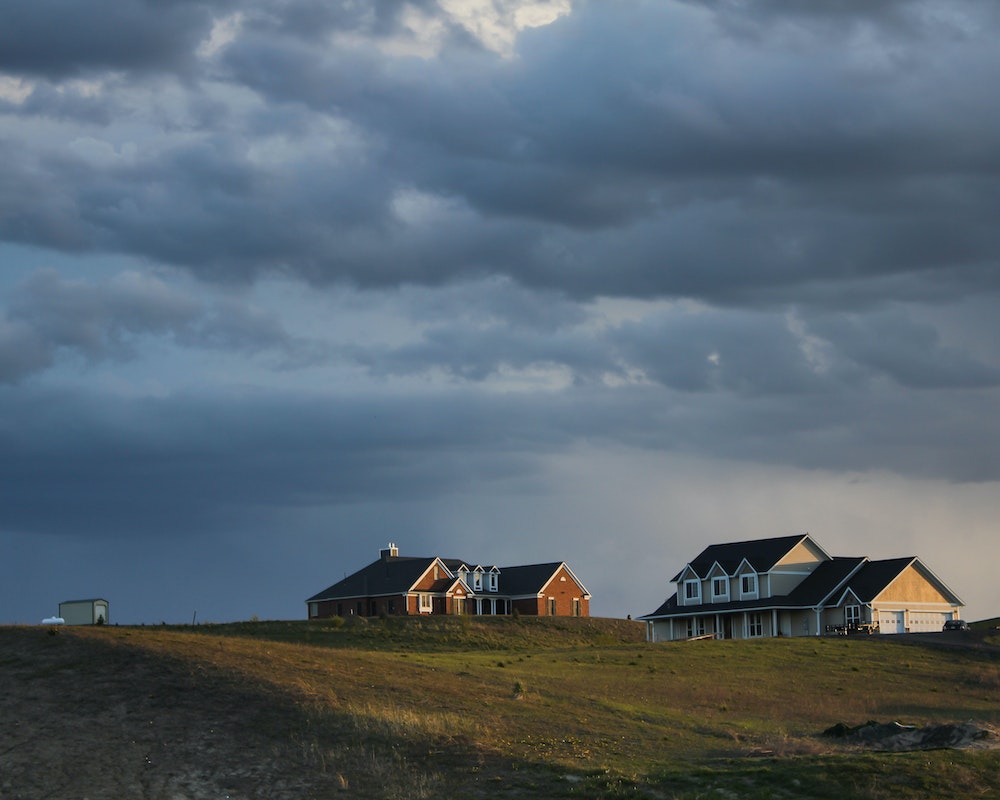A storm is coming. The rain is already starting to fall, the wind is beginning to howl, and the darkness is creeping in. As the storm nears, you start to think about everything you need to do to prepare your home. From your emergency supplies to emergency roofing repair services, there are many important steps you need to take.
Many homeowners regret not preparing for storms in advance. Why? Because if you don’t prepare, you can end up dealing with extensive damage and expensive repairs. Apart from the physical destruction, there are also financial costs associated with the repair and cleanup.
Preparing for a storm
Whether there is a storm coming or not, it is always a good idea to have an emergency plan in place. Here’s a quick rundown of some of the most important things you can do to get your home ready for a storm.
- Bring in any loose items from outside. Lawn chairs, toys, hoses, and any other outdoor items that the wind can pick up should be brought inside or securely fastened down.
- Close and lock all windows and doors. Windows and doors should be shut and locked to prevent them from being broken by flying debris.
- Keep emergency numbers at hand. You’ll never know when you might need help, so it’s always good to keep emergency numbers handy. This might include hospital emergency services, emergency roofing repair services, emergency veterinarians (if you have pets), and emergency plumbers.
- Unplug any electronics that could be damaged by a power surge. Computers, TVs, and other electronics should be unplugged from their power sources to protect them from power surges caused by lightning strikes.
- Fill up your gas tank. Make sure your car has a full gas tank so you can easily leave if you need to evacuate.
- Stock up on food and water. Non-perishable food items and plenty of water should be stored in your home if you lose power and cannot leave for an extended period.
- Charge your devices. Cell phones, laptops, and other devices should be fully charged in case you lose power and cannot charge them for an extended period.
- Locate your emergency kit. Your emergency kit should contain flashlights, batteries, first-aid supplies, and blankets. Make sure you know where it is to easily find it in the dark if the power goes out.
- Move valuables to higher ground. If there is a chance of flooding, move valuables like important documents and heirlooms to higher ground so they don’t get ruined by water damage.
- You may also want to consider boarding up your windows if there is a chance of severe wind or hail damage. This will help protect your home from flying debris.
How to know if a storm is coming
While we can’t control the weather, there are ways to stay ahead of the game and be prepared for when severe weather strikes. Here are a few things you can do to help you know if a storm is coming.
Check the Weather Report

This may seem like a no-brainer, but checking the weather forecast is one of the most effective ways to know if a storm is coming. Most news stations will have a segment dedicated to the weather, or you can check online or on your phone. Just be sure to stay updated as the forecast changes so you can be as prepared as possible.
Pay Attention to Dark Clouds and Wind speeds
Another way to tell if a storm is coming is by paying attention to the clouds. If you see dark, low-hanging clouds, that’s usually a sign that rain or thunderstorms are on their way. Additionally, if you feel a sudden gust of wind, that’s also an indication that bad weather could be heading your way. The higher the wind speeds are, the more severe the storms are likely to be.
Stay active on social media
Local news and emergency services will often post updates about weather conditions on their social media accounts. Following these accounts or joining neighborhood groups is a great way to stay up-to-date on any developing storms in your area. Also, check your phone for emergency alerts or warnings that may be sent out if severe weather is approaching.
The bottom line
Your family’s safety should be your number one priority so it’s important to always stay prepared for severe weather. Taking the time to know what to do if a storm is coming can help you protect yourself and your family from any potential damage that may occur. Follow these tips and you’ll be ready in case of an emergency.











